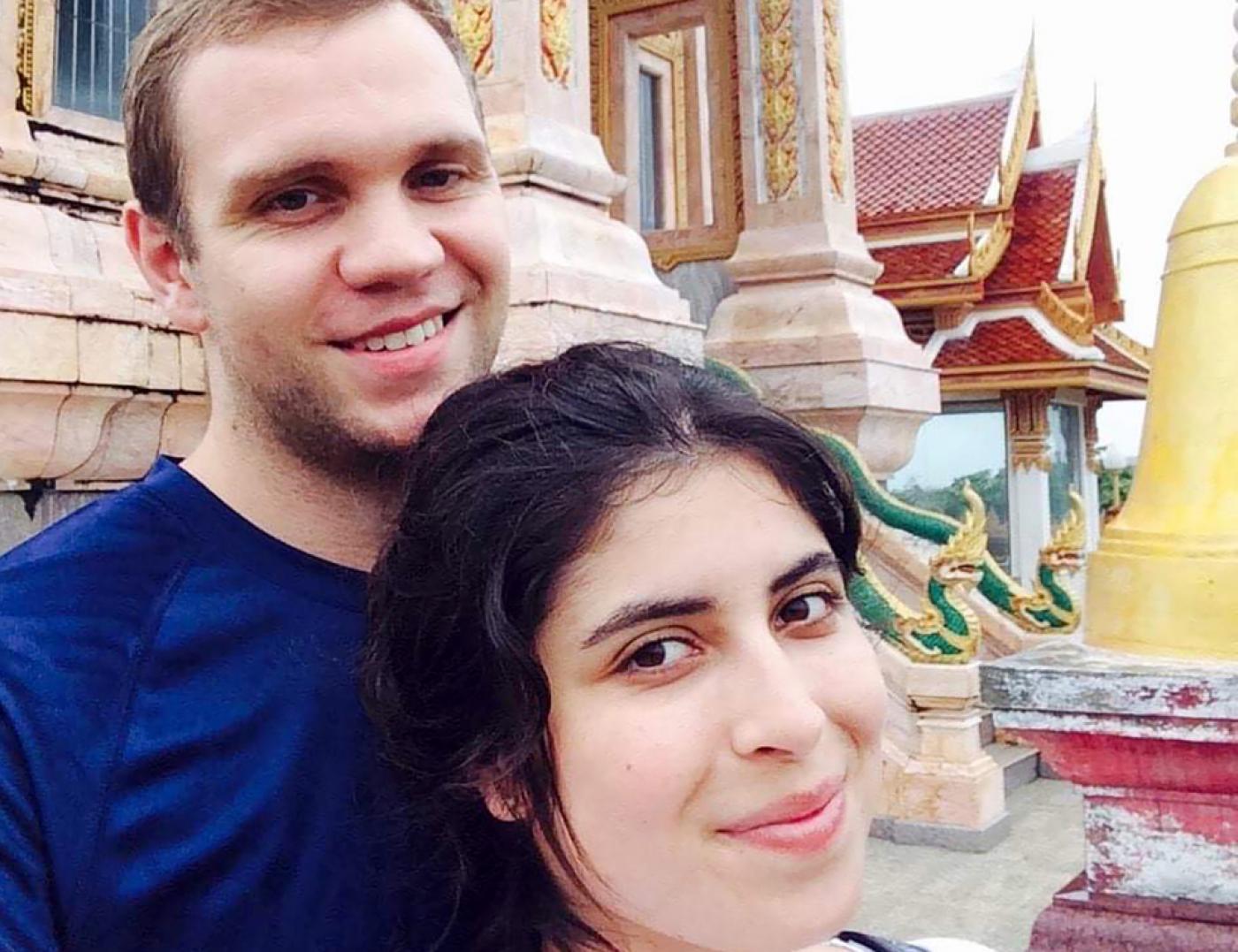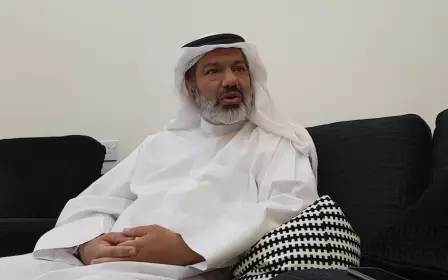Matthew Hedges' wife slams UAE for detention of British football fan

The wife of a British academic detained and abused in the UAE has described the news that another British national has been threatened with 15 years in jail in the Gulf country after signing a "forced" confession as "disconcerting".
Daniela Tejada, whose husband Matthew Hedges was detained for seven months in the UAE last year, said that the arrest of Ali Issa Ahmad - a football fan allegedly arrested on 22 January for wearing a Qatari national football shirt - raised "serious concerns over the increasing lack of freedom of speech and conscience in the UAE."
"A confession cannot be understood to be the sole determinant to a case to be opened, let alone for a man to be judged over it - particularly when the Emirati authorities have a worryingly public precedent of extracting confessions under duress and without the presence and assistance of a legitimate defence lawyer or even of a consular officer," she told Middle East Eye.
Ahmad, an Arsenal fan from Wolverhampton, in England, was on holiday in the UAE when he was arrested following an Asian Cup match between Iraq and the UAE.
Wearing Qatar's national jersey in public is illegal in the UAE, ever since the imposition of a blockade of the country began in June 2017.
New MEE newsletter: Jerusalem Dispatch
Sign up to get the latest insights and analysis on Israel-Palestine, alongside Turkey Unpacked and other MEE newsletters
Ahmad said that he had been beaten by security forces and was then charged with "wasting police time" and "making false statements" when he reported it to the police.
Detaining a man simply for supporting an adversary at a football match displays great lack of sportsmanship
- Daniela Tejada, Matthew Hedges' wife
Radha Stirling, the CEO of company Detained in Dubai, said in a statement on Thursday that 26-year old British man had been "forced to sign a confession in Arabic" and was being told that if he pleaded guilty to charges during a hearing on Monday, he would be allowed to return home.
“If Ali Ahmad is innocent of the charges, he should not plead guilty for if he does, he could face a lengthy custodial sentence and be subjected to human rights violations within the prison," she added.
The Emirati embassy in the United Kingdom has denied that Ahmad was arrested for wearing a Qatar shirt and said that his injuries "appeared to be self-inflicted".
He is currently being held in a prison in Sharjah. The UK Foreign Office (FCO) has announced that it is currently helping a British man detained in the UAE.
Tejada said that Ahmad's case further undermined attempts by the UAE to portray itself as an open society, noting the country had designated 2019 its "Year of Tolerance".
"Ali Issa Ahmad’s case is particularly disconcerting when taking into consideration that it exposes the unalignment of the state’s practices versus its much promoted 'Year of Tolerance'," she said.
"Detaining a man simply for supporting an adversary at a football match displays great lack of sportsmanship and, more importantly, raises serious concerns over the increasingly lacking freedom of speech and conscience in the UAE."

The arrest and imprisonment of PhD student Hedges in May last year - over allegations of spying - provoked a diplomatic crisis between the UK and the UAE, particularly after he was handed a life sentence following a five-minute trial hearing. During his detention he was subjected to, in his own words, "humiliating" treatment and repeatedly drugged and placed in solitary confinement.
Although he was issued a pardon and returned to the UK a few days later, Tejada and Hedges have said they will continue to pursue a legal case to try and clear Hedges' name, as well as raise the plight of other imprisoned activists, including Emirati activist Ahmed Mansoor, who was sentenced to 10 years in jail in May 2018.
"We hope to achieve a fair outcome and that, in the eyes of the law, Matt’s innocence ceases to be a matter of contention, and instead goes back to being what it’s always been: just a fact," she told MEE.
She added that they were currently hoping to pursue a "diplomatic" solution to the issue in tandem with the British government.
'Unaware of the dangers'
Campaign groups have repeatedly called on the foreign office to update the travel warnings for British citizens in the wake of the Hedges and Ahmad cases.
At present the advice on the website warns that "showing sympathy for Qatar on social media or by any other means of communication is an offence" in the country.
However, there is no suggestion that British citizens should avoid travel to the country, as there are with other countries considered risky.
"Detained in Dubai has repeatedly requested the FCO increase its travel warnings to British citizens who are considering visiting the UAE, and I repeat that request now," Stirling said in a statement.
"Foreigners are more likely to be arrested in the Emirates than in any other destination, and once entangled in the legal system, there is a high probability of suffering human rights abuses. For this reason, the High Court of England has refused extradition to the UAE, yet tourists continue to be largely unaware of the dangers."
READ MORE
► Matthew Hedges is free. What about UAE citizens who are unfairly jailed and silenced?
The Gulf state has previously been accused of employing extrajudicial methods to crack down on dissent within its borders and has been repeatedly criticised for its human rights record.
A 2016 Amnesty International report said that forced disappearances were pervasive in the country.
Nicholas McGeehan, a former Bahrain, Qatar and UAE researcher at Human Rights Watch, warned that there was no independent judiciary in the country, despite its claims to the contrary.
"It's a police state. You have these squads of people who operate completely outside the rule of law and snatch people off the street, snatch people out of airports, and disappear and torture them based on spurious allegations, or based on their background, or based on their associations that the UAE disapproves of," he said.
Middle East Eye delivers independent and unrivalled coverage and analysis of the Middle East, North Africa and beyond. To learn more about republishing this content and the associated fees, please fill out this form. More about MEE can be found here.




